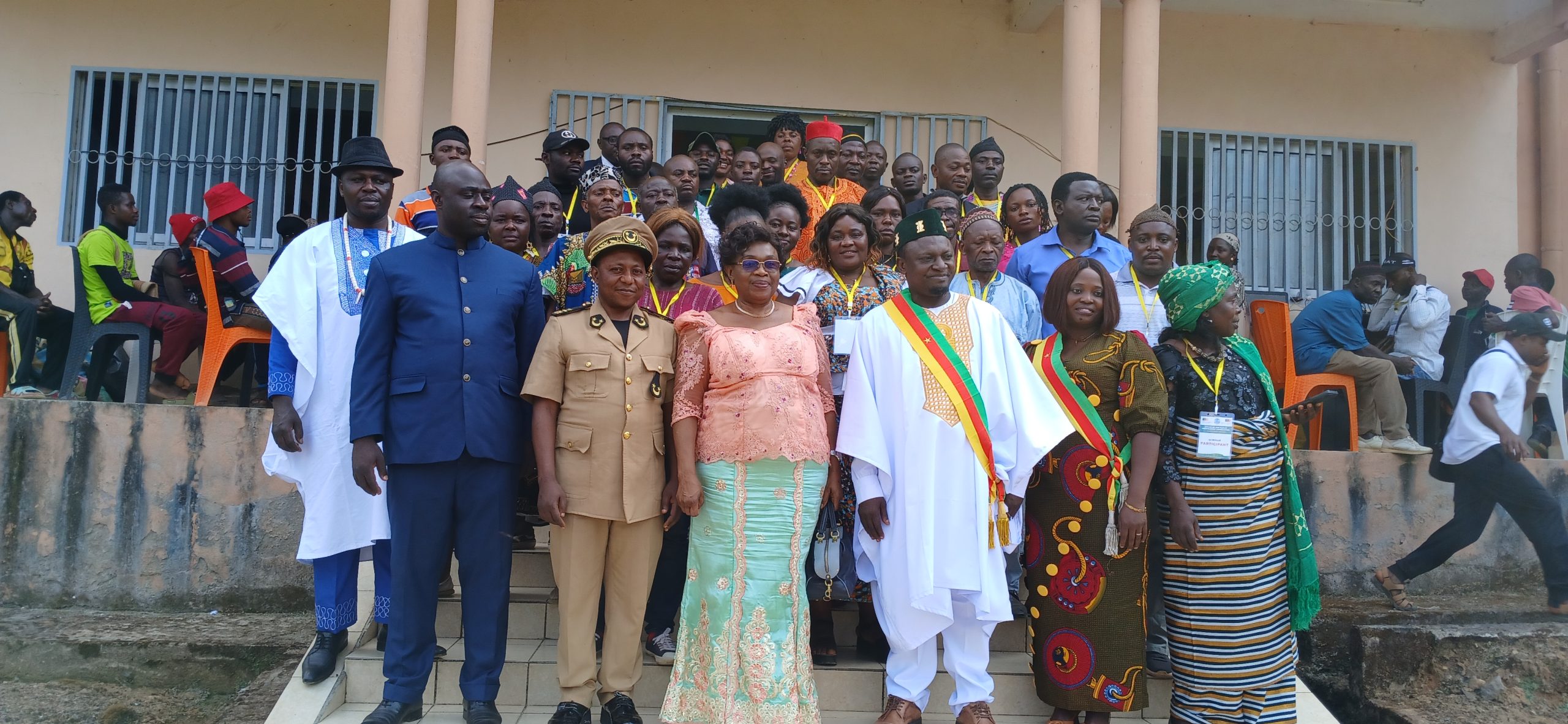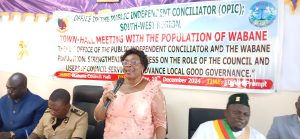
The Public Independent Conciliator, Mme Telelen Dorothy Motaze, speaking during the Town-hall meeting
The Wabane Council takes commitment to improve citizens’ participation in local development. The Lord Mayor of Wabane Council took the commitment during a Town-Hall Meeting organized by the Office of the Public Independent Conciliator on Tuesday, 10th December 2024 at the Wabane Council Hall. Held under the theme “Office of the Public Independent Conciliator and the Wabane Population: Strengthening Awareness on the Role of the Council and Users of Council Services to Advance Local Governance”, the meeting was attended by the Senior Divisional Officer of Lebialem Division, Ambang Fabian Kah, the Divisional Officer for Wabane sub-division, Nji Ayiagnigni Mama, the Mayor of Wabane Council, Nembo Ketu Israel, municipal councillors, traditional rulers, religious authorities, and the population of Wabane.
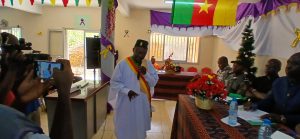
The Mayor of Wabane Council, Nembo Ketu Israel delivering his welcome statement
During the meeting, the Public Independent Conciliator, Mme Telelen Dorothy Motaze stated that the theme of the meeting proves the sincere desire of the Office of the Public Independent Conciliator to accompany the Municipality of Wabane to improve the quality of services delivery to users. This desire, she noted, can be achieved when the council and community stakeholders work together in the spirit of collaboration. She went further to state that, while the council continues to work towards its statutory missions aimed at providing developmental services to the population within the framework of government’s decentralization policy, it is her desire that users play their role and contribute in fostering a user-friendly culture with the council by fulfilling their duties and respecting their obligations towards the municipality for the good of the population. She highlighted that this atmosphere of collaboration within the municipality is necessary to ensure that government’s policy of effective decentralization is not a mere slogan, but a practical reality.
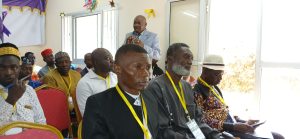
The Resource person, Mr. Fonju Bernard presenting the missions of OPIC to participants
The Public Independent Conciliator emphasized on the fact that, the institution cannot completely attain its objectives without concerting with municipal authorities and more importantly, the users of council services in Wabane sub- division, as such, she decided to take the initiative to organize a town-hall meeting with community stakeholders of Wabane sub-division.
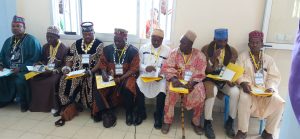
View of traditional rulers of Wabane subdivision present during the Town-hall meeting
In order to engage with participants, there was a question-and-answer session, which enabled participants to express their concerns and get feedback from the authorities present. During this interaction, participants had the opportunity to get information on projects carried out by the council. They also expressed concerns on issues like road rehabilitation, infrastructural development, education, health, and social amenities. After the session, participants expressed their satisfaction as their questions were answered and clarifications were made.
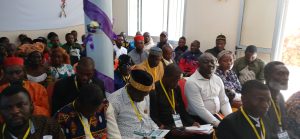
View participating attentive during deliberations
A major fallout of the exchanges is the commitment taken by the mayor to involve the population in development consultation frameworks like Council sessions, Budget orientation debates and Town-hall meetings. While the Council has put in place villages committees, the mayor has resolved to organize town-hall meetings aimed at consulting the population about their development needs and priorities.
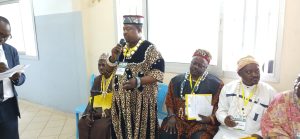
A traditional ruler asking questions during the interactive session
The Public Independent Conciliator on the other hand was impressed with the level of engagement from participants, as the suggestion or recommendations raised will further strengthen positive collaboration between the population and the council for the overall benefit of the community. The public Independent Conciliator also encouraged participants to take the information received from the meeting to their various relatives and peers, in order to educate and sensitize the population about the missions of the institution, created within the framework of the Special Status to examine and provide solutions to problems at the local and regional levels.

